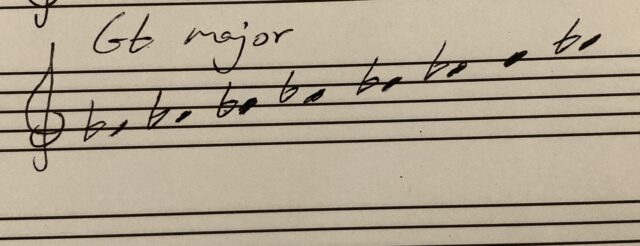
We are finishing our scale challenge today, on Make Music Day, with the 12th key, Bb major. Congratulations! You have learned all of the major scales, which is a major achievement and something to be very proud of.
For today’s practice, you know what to do—play this scale thoughtfully, with awareness, listen as you play, and don’t rush. See if you can play it perfectly the first time through, by waiting until you are sure of the next note before you play it. This may seem really slow and tedious, but this cultivation of awareness will resonate through everything you play, and elevate the level of your playing. As before, play all of the previous scales that we learned, and assess how much you have grown as a musician in the past 12 weeks. Maybe you will choose to continue this work beyond Make Music Day, with the minor scales, or something else?
The route we took through all the keys was a little unusual, and I hope that this was interesting and stimulated further thought about the order in which you practice. Thank you for joining us, and Happy Make Music Day! #makemusicpractice












